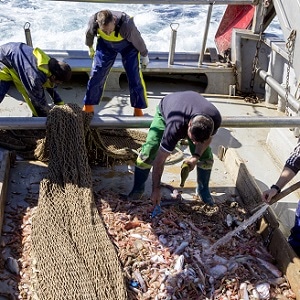Mar 17 2019
The RespescaPlas Project, which began in January 2018, has completed its first year with more than 3,000 kilos of marine litter collected from the water in the ports of Marín and Vigo (Galicia) and Gandia, (Valencia). Thanks to the methodology developed by the MARNOBA platform, about 8,000 items were characterized by typologies, counted and classified according to categories. Then, an ecotoxicology study of the different types of debris was developed, with negative results in all cases except for a type of fishing net.

New Life for Litter Collected from the Sea
In this second year of the project, which started in February, the project aims to delve into these results to analyze whether this toxicity derives from the material, the additives or the elements adsorbed during its presence in the marine environment. Moreover, it will seek a solution to recover this kind of wastes, which is currently a complex issue due to the degradation resulting from their exposure to the marine environment.
More than 3,000 Kilos of Marine Litter Collected
“These materials are very heterogeneous since they are a consequence of mismanagement. The items we can find in the seas and oceans come from different sources. In addition, these materials are exposed to extreme weather events as well as to the environmental conditions of the seas”, Sonia Albein says, the main researcher of the project in AIMPLAS. Due to a high degradation, polymers lose part of their original physical-mechanical properties, so in some cases, the shredding of some of them is more difficult if compared to a waste that comes from the packaging bin.
“The combined use of these wastes with the well-managed ones is not optimum, because it could lead to a current lowering in the efficiency regarding separation as well as in the quality of the final product. For this reason, in this second phase of the project, we are focusing on the feasibility study for the development of previous treatment for this kind of litter at the treatment plant, among other issues”, Albein claims.
The RepescaPlas Project is being developed together with the Fundación Biodiversidad of the Ministry for Ecological Transition under the Pleamar Program, co-funded under the FEMP (European Maritime and Fisheries Fund).